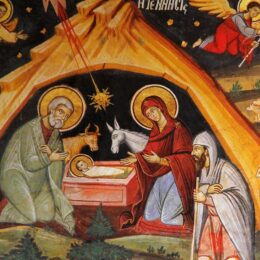BreakPoint | Stephen Reed | May 29, 2009
Chuck Colson is fond of saying that the church shines brightest in tough times. History appears to support BreakPoint’s founder on this, as Christians have served extraordinarily well in a variety of ways during economic difficulties and social unrest. John Wesley, William Wilberforce, Mother Teresa—none of them had ideal circumstances in which to operate. That is why their respective ministries were so needed.
So what happened to America? Here we are, known far and wide as the most religious country in the West, and yet people constantly turn to the government more than the church in times of crisis. President Obama’s approach of having the federal government bail out banks, the automotive industry, and now perhaps even credit card users makes him the man of the moment. Obviously, even if the nation’s churches banded together and gave sacrificially to bail out all these entities, we probably couldn’t pull it off.
Does this prove the liberal politico’s thesis that, sometimes, there are just some economic and social problems that only the government can address? Is Uncle Sam’s stressed-out checking account the only one big enough to cover our tab at the spender’s bar?
In short, while the church can give comfort on the side, is it not irrelevant in terms of shaping public policy?
In order to answer this in a meaningful way, we have to go back to an even worse time in our nation’s history—the Great Depression. Following the stock market crash in late 1929, the U.S. economy completely cratered, as did the world economy. Twenty-five percent of the country was out of work, not 8 or 9 percent. Suffering was on a grand scale as many middle-class American families were uprooted, traveling like nomads in search of work. No safety nets, no government relief checks in the mail. Desperate.
Enter Franklin Roosevelt as President in 1932, promising to make changes. Many people were so desperate that they didn’t care what Roosevelt did as long as he tried something. To his credit—and perhaps naiveté—Roosevelt believed that the temporary programs his administration was creating to put Americans back to work at government jobs would be temporary. They were created simply to help get America back on its feet.
Churches, meanwhile, were overwhelmed with their own problems. Sagging attendance in some areas, along with a significant drop in the collection plates, no doubt fostered a “charity starts at home” mentality. Importantly, the sheer size of the nation’s economic problem probably seemed far beyond the church’s ability to deal effectively with so many people’s needs. Many did what they felt they could—and were relieved when FDR’s federal cavalry came riding in to give relief.
This is understandable. While it’s possible that many churches were relying more on their own assessment of their duty than prayerfully asking God what more they could do, had we been in their shoes we might have done the same thing. However, where the church erred was after the great crises of the Depression and World War II had passed. The 1950s were the years for the church to assert itself again as being integrally involved in the welfare of their communities. Not merely their membership, but their part of the country.
Many churches, Protestant and Catholic, settled into those fat economic years much like most Americans did—enjoying being in a comfortable place in their lives, without much empathy for those down on their luck. That’s not to say there weren’t notable exceptions and great social efforts by Christians. But the fact that the federal government’s role in people’s lives continued to grow indicates that the church was continuing to yield its influence to it.
Fast forward a generation later. Now we have what could be a segregated system in some of our larger cities, not so much based on race but whether one belongs to a megachurch. Many of these huge churches have seen something important, namely that Christians have multifaceted lives that need fed with wholesome content. So some megachurches have their own newspapers, their own gyms, their own daycare centers, and their own coffee shops and bookstores.
Nothing wrong with any of that as long as it doesn’t take them away from other people outside the church. In fact, if a megachurch can invite people from the outside to enjoy some of these different benefits within the church’s walls, then it will be performing a wonderful act of hospitality, encouraging others to learn more about the Gospel in a myriad of contemporary settings.
But what of the rest of us, whose churches do not have all these modern amenities? How will we meet people, becoming the church again and showing everyone, including government officials, that we know and love our communities better than they ever could?
. . . more



